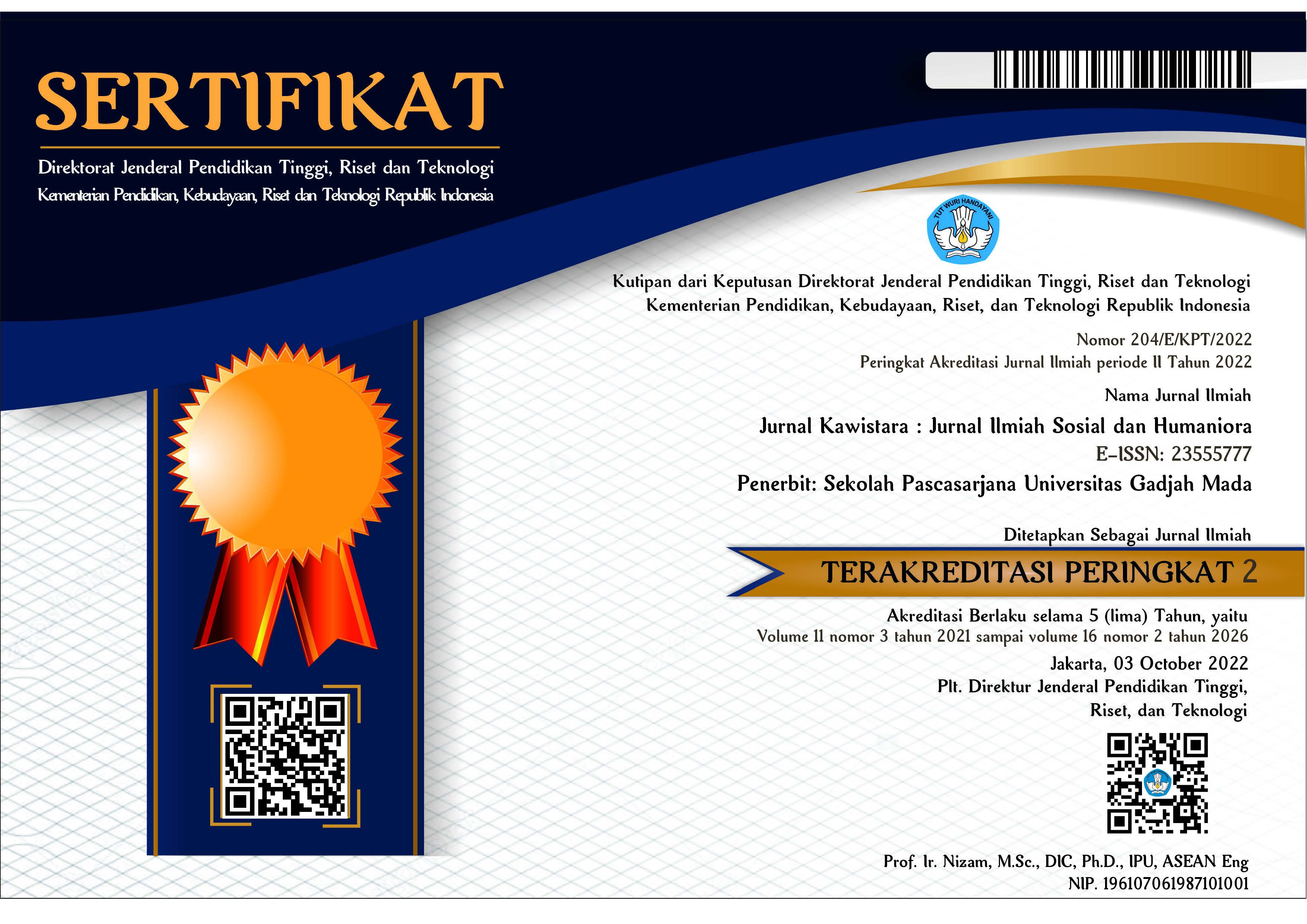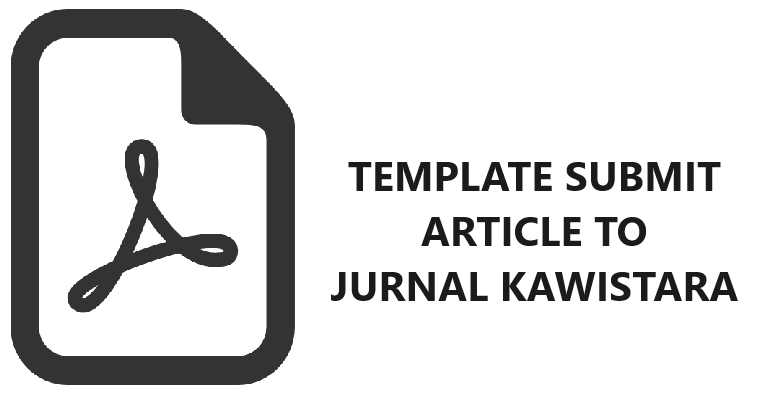FUNGSI LAGU PERJUANGAN SEBAGAI PENDIDIKAN KARAKTER BANGSA
Wisnu Mintargo, RM. Soedarsono, dan Victor Ganap(1*)
(1) Institut Seni Indonesia Surakarta
(*) Corresponding Author
Abstract
Patriotic songs basically originated from the history of education in Indonesia, starting from intellectual
circle and teachers in pre-independence era initiated by the Boedi Oetomo movement (1908), the 1928
Youth Pledge and post 1945 independence. The form and meaning of the patriotic songs, either on
vocals or with instruments, take place in ceremonial activities and performance art. According to Alan
M. Meriam and RM. Soedarsono, this applies to public school, the Indonesian Air Force, and Gelora
Bahana Patria Choir. As for character education, the specialty of Yogyakarta reflects its identity as a
city of struggle, city of education and city of arts and culture. According to the theory of transformation,
something new, including the arrangements of patriotic songs in the forms of march, hymn, romance
for parade, military defile and aubade, is to restore the spirit of nationalism and patriotism. The success
of transforming the patriotic songs so as to have new atmosphere is dependent on the various abilities
to make the arrangement works, so that they can draw attention from the doers and the listeners and
function in ceremony and performance art. In line with the Decree of the Ministry of National Education
of 2011 items 10 and 11 regarding the values of nationalism and patriotism, we can realize those values
by singing patriotic songs, using Indonesian language as the unifying language, and acknowledging,
appreciating and commemorating the services of national heroes.
Keywords
Full Text:
PDFArticle Metrics
Refbacks
- There are currently no refbacks.
Copyright (c)
Jurnal Kawistara is published by the Graduate School, Universitas Gadjah Mada.











